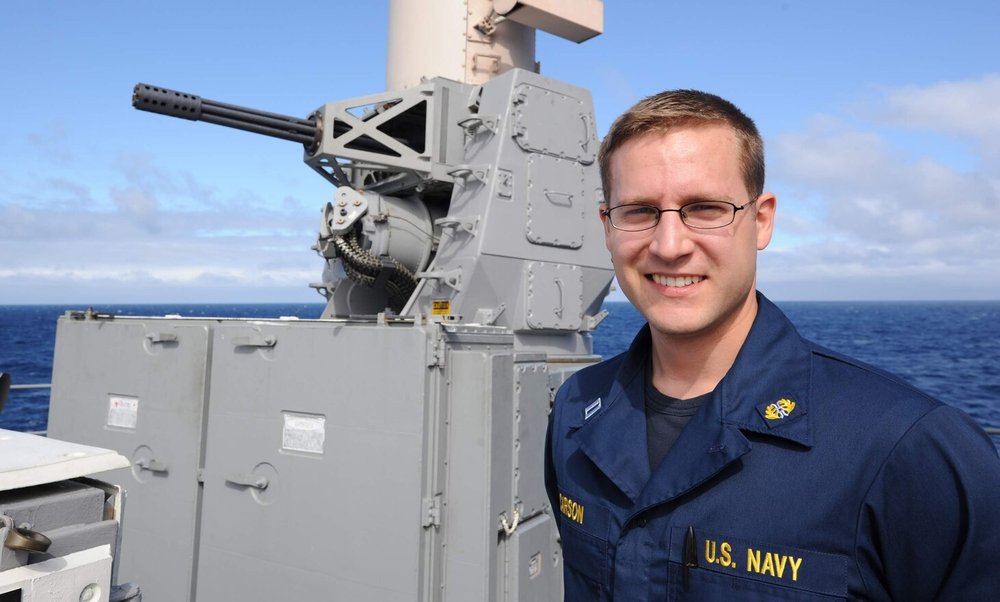Navy JAG Supports Joint Warrior 12-2 “Well, JAG, what do you think?” How little we realize how often that question is asked and how much depends on the answer. Nothing could bring that into sharper focus than the operational environment. This question was put to me as I briefed a critical rules of engagement (ROE) request during a recent coalition exercise. This was the pinnacle event of Joint Warrior 12-2 for me as a judge advocate. “Well, JAG, what do you think?” How little we realize how often that question is asked and how much depends on the answer. Nothing could bring that into sharper focus than the operational environment. This question was put to me as I briefed a critical rules of engagement (ROE) request during a recent coalition exercise. This was the pinnacle event of Joint Warrior 12-2 for me as a judge advocate.
Joint Warrior is a semiannual training event hosted by the Royal Navy’s Joint Tactical Exercise Planning Staff in the United Kingdom. It provides a multi-threat environment where joint forces from various NATO allies gain pre-deployment training and practice what it means to be a part of a Combined Joint Task Force. For me, it was an opportunity to advise the Commodore of a Combined Task Group on operational law issues in a simulated but high tempo environment. It also gave me a much needed and much appreciated in-depth look at the work of the operational Navy. I saw (and slept directly beneath) flight operations and watched replenishments at sea. I witnessed the five inch gun firing inert, high explosive, and illumination rounds. I shared a freezing stateroom with five other staff officers, one of them from the Royal Navy. Joint Warrior is a semiannual training event hosted by the Royal Navy’s Joint Tactical Exercise Planning Staff in the United Kingdom. It provides a multi-threat environment where joint forces from various NATO allies gain pre-deployment training and practice what it means to be a part of a Combined Joint Task Force. For me, it was an opportunity to advise the Commodore of a Combined Task Group on operational law issues in a simulated but high tempo environment. It also gave me a much needed and much appreciated in-depth look at the work of the operational Navy. I saw (and slept directly beneath) flight operations and watched replenishments at sea. I witnessed the five inch gun firing inert, high explosive, and illumination rounds. I shared a freezing stateroom with five other staff officers, one of them from the Royal Navy.
I socialized in the wardroom with ensigns and admirals. I observed the innovative counter-piracy strategy of using air assets to keep pirates away from their intended targets. I also gained tremendous legal experience that helped me see how critical our trade is to effective warfighting. Even before the exercise began, I was called upon to review and update rules of engagement requests and rules of engagement implementation orders. These critical responsibilities continued unabated throughout the exercise. I drafted and executed a publication exercise to test the knowledge of ships’ company on ROE. I socialized in the wardroom with ensigns and admirals. I observed the innovative counter-piracy strategy of using air assets to keep pirates away from their intended targets. I also gained tremendous legal experience that helped me see how critical our trade is to effective warfighting. Even before the exercise began, I was called upon to review and update rules of engagement requests and rules of engagement implementation orders. These critical responsibilities continued unabated throughout the exercise. I drafted and executed a publication exercise to test the knowledge of ships’ company on ROE.
I benefitted immeasurably from the opportunity to pick a seasoned captain’s brain on the bridge of his ship about the nuanced difficulties of operationally implementing various specific ROE. I learned to distinguish ROE that enable surface warfare from ROE that enable mine warfare, and the important practical distinctions between the two. I saw how ROE can both influence and implement strategy while executing a simulated non-combatant evacuation operation, and navigating the legal and public affairs challenges associated with taking custody of detainees. Perhaps most importantly, I felt the weight, even if only simulated, that rests upon the JAG’s shoulders. I benefitted immeasurably from the opportunity to pick a seasoned captain’s brain on the bridge of his ship about the nuanced difficulties of operationally implementing various specific ROE. I learned to distinguish ROE that enable surface warfare from ROE that enable mine warfare, and the important practical distinctions between the two. I saw how ROE can both influence and implement strategy while executing a simulated non-combatant evacuation operation, and navigating the legal and public affairs challenges associated with taking custody of detainees. Perhaps most importantly, I felt the weight, even if only simulated, that rests upon the JAG’s shoulders.
So what does this JAG think? To any judge advocate given the opportunity to practice operational law in an international context like Joint Warrior, I recommend the perfect word from our British allies who host Joint Warrior that warmly conveys gratitude, farewell, and excitement: So what does this JAG think? To any judge advocate given the opportunity to practice operational law in an international context like Joint Warrior, I recommend the perfect word from our British allies who host Joint Warrior that warmly conveys gratitude, farewell, and excitement: Cheers! Special thanks to Commodore Nelson Castro, the DESRON TWO SIX staff, and the captain and crew of the USS Gettysburg (CG-64).
